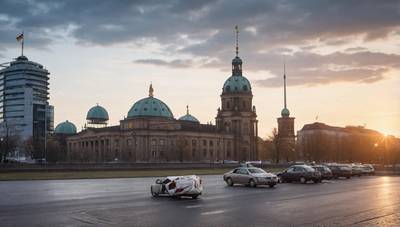Berlin is urged to act quickly by corporate bosses on the weak economy
German business leaders called for Berlin to quickly form a new Government on Monday, warning that Europe's largest economy cannot afford to waste time while companies are suffering from high costs and red tape, as well as increased competition from abroad.
The CDU/CSU won the Sunday national elections, clearing the way for a new coalition government with the Social Democrats. This eased concerns about a potentially more fractured three-way system and prompted the corporate call to the parties to act quickly.
Even so, the opposition still holds a majority in parliament that prevents them from making more radical decisions. This includes loosening Germany's constitutionally-enshrined debt limit, which keeps it budgetally constrained.
Germany's leading companies have been criticizing the government for years over the lack of action on energy costs. These are among the highest in Europe, and twice as expensive as in China or the United States.
Roland Busch said, "We do not need to discuss the problem any more, it is well-known. We need to implement now."
"Because we are not the only ones in the world - the pressure on Germany to act, especially with regards to competitiveness is immense."
Germany's economy could shrink for a third year in a row in 2025. This has raised alarm amongst corporate bosses, especially at a moment when U.S. president Donald Trump is fuelling an international trade war, and Chinese rivals are moving into Europe.
Christian Sewing is the CEO of Germany's biggest lender, Deutsche Bank. He also serves as president of the German bank association.
"The challenges that our country faces are immense: the economy needs to be given a new start through fundamental reforms."
In a recent survey conducted by the German Chamber of Commerce and Industry, 60% of companies cited economic conditions as their biggest risk, citing bureaucracy, high energy and labour costs and bureaucracy. This was the highest ever level.
It has fueled fears of deindustrialisation, as many companies choose to invest in countries where the conditions are better.
Christian Bruch said that the German government must quickly restore its competitiveness. The democratic-centrist parties of Germany will need to form as soon as possible a coalition.
Energy policy is crucial. "The expansion of gas-fired plants, the strengthening and modernisation of the electricity grids, as well as a reliable supply of raw material, are all essential." (Reporting and editing by Kirsten Doovan, David Evans and David Evans; Reporting by Christoph Steitz and Alexander Huebner)
(source: Reuters)

